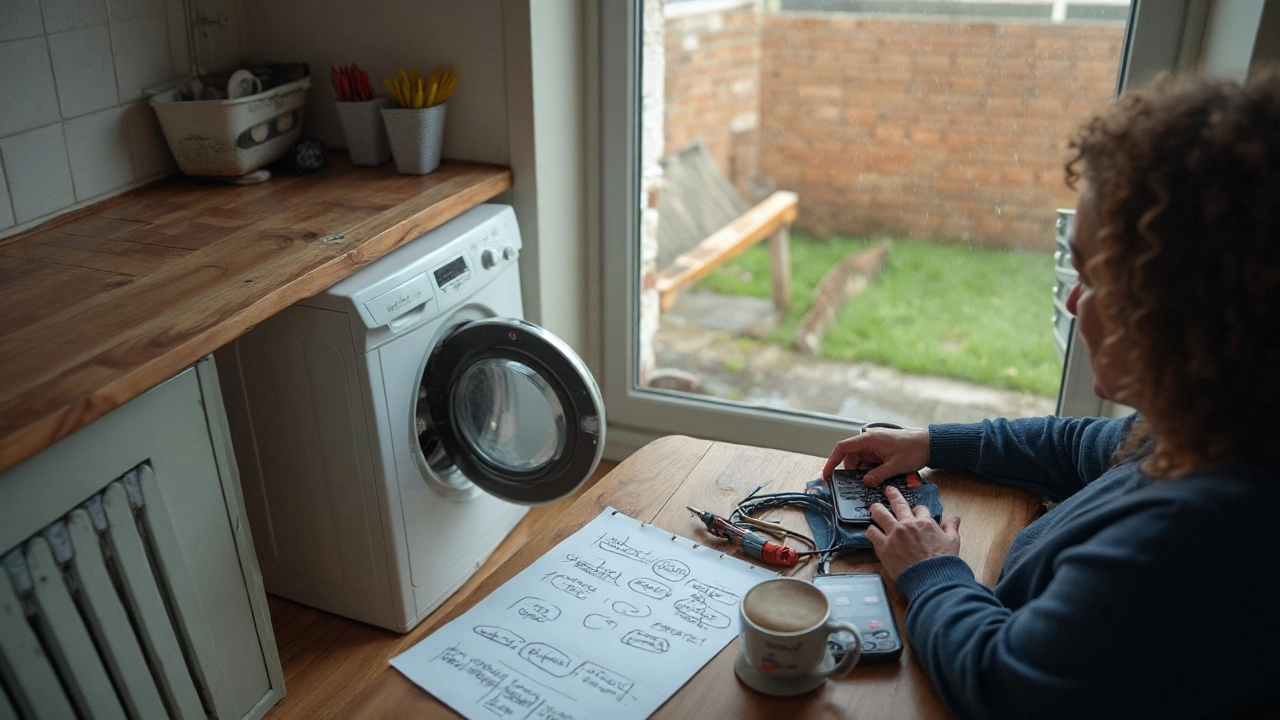When to Replace a Washing Machine – Spot the Signs Early
We all love a washer that spins clean clothes without drama. But after a few years, it can start acting up. Knowing when to stop fixing and start shopping saves money and headache. Here’s a straight‑forward guide to tell if your machine has crossed the line.
Typical wear‑and‑tear that means it’s time to go
Look for any of these red flags:
- Leaking water. A steady drip or a big puddle usually means a cracked tub or worn seals – both pricey fixes.
- Strange noises. Rattling, grinding, or banging that won’t stop after a cycle often points to a damaged drum or motor.
- Won’t spin or drain. If the washer chugs in wash mode but never spins or drains, the pump or belt may be dead.
- Excessive vibration. Heavy shaking can damage floors and the machine itself. It often means the suspension is worn out.
- Rusty or foul smells. Persistent odor after washing suggests internal corrosion that you can’t clean out.
If you’ve tried basic troubleshooting and the problem persists, move to the next point.
How long should a washer last?
Most modern front‑load or top‑load washers are built for 10‑12 years of average use. Quality brands can push to 15 years, but that’s the exception, not the rule. A good rule of thumb: if your machine is older than 8‑10 years and you’re facing major repairs, replacement is often cheaper.
Consider the cost ratio: if a repair bill reaches 50 % or more of the price of a new washer, buying new usually pays off. New models also use less water and electricity, cutting future bills.
Another factor is warranty. A brand‑new washer comes with a standard 2‑year guarantee, and many retailers offer extended plans. That peace of mind can outweigh the upfront cost.
When budgeting, add the hidden costs of a broken machine: time spent without laundry, potential water damage, and increased energy use from a failing motor.
So, how do you decide?
1. **Age check** – Is it over 8 years?
2. **Repair cost** – Is it more than half the price of a new unit?
3. **Frequency of issues** – Are breakdowns happening more than once a year?
4. **Energy efficiency** – Would a newer, Energy‑Star model save you money?
If you answer yes to most of these, start shopping. Look for a washer that fits your load size, space, and budget. Front‑loaders use less water, while top‑loaders are often cheaper to repair.
Need help with a quick diagnosis before you buy? Glastonbury Appliance Repair Services can pop over, pinpoint the problem, and give a clear repair‑or‑replace quote. A short visit can save you a costly mistake.
Bottom line: don’t let a few hiccups turn into a money drain. Spot the signs, weigh the costs, and decide confidently. Your laundry routine—and wallet—will thank you.

What Age Is Old for a Washing Machine? Lifespan, Repair or Replace Guide (2025)
Wondering when a washer is "old"? See lifespan by type, repair vs replace math, costs, energy savings, checklists, and an Aussie-savvy decision guide for 2025.